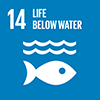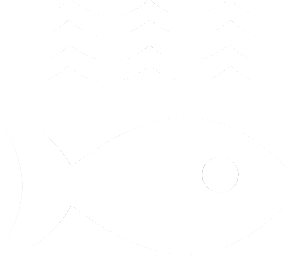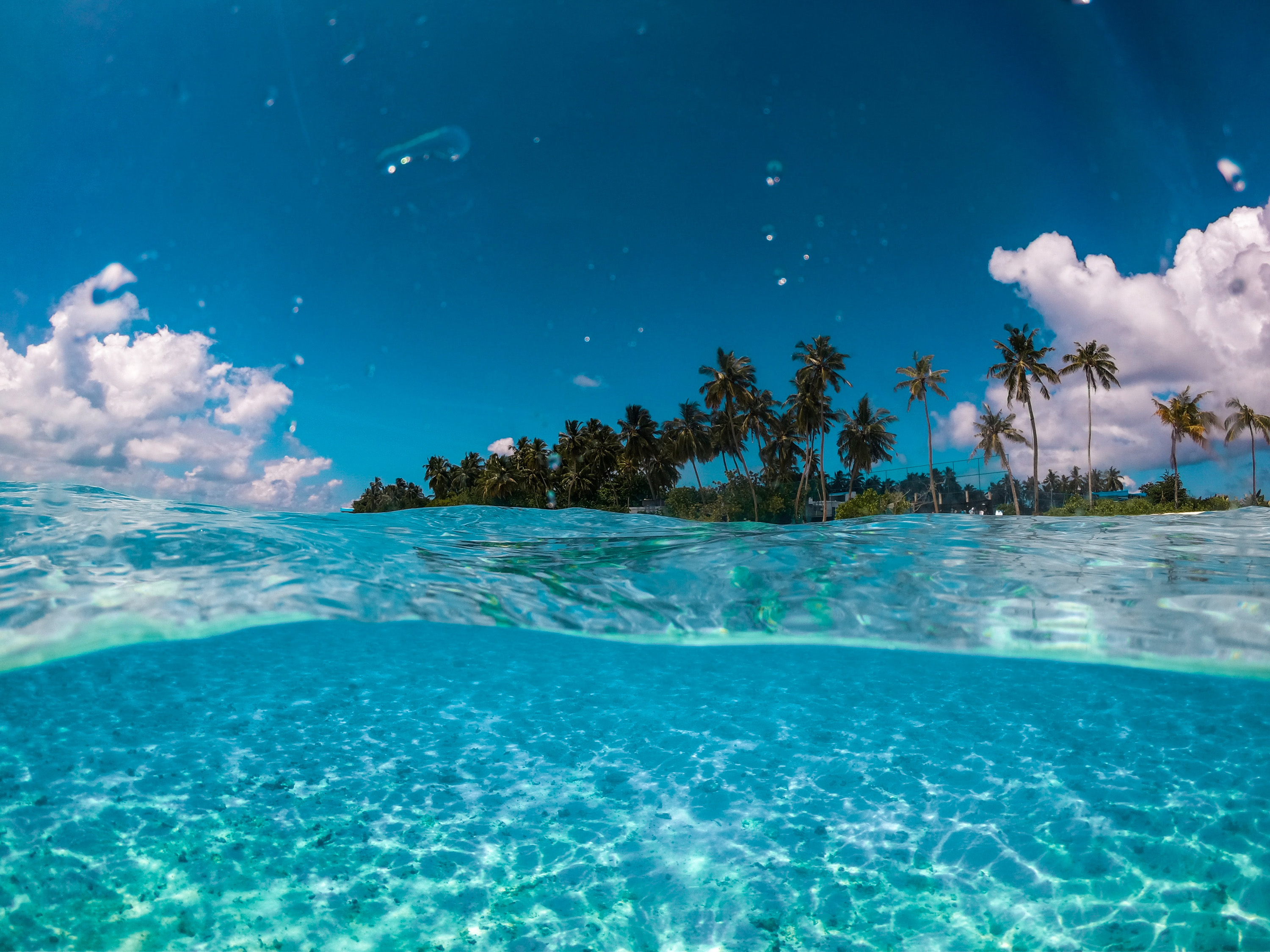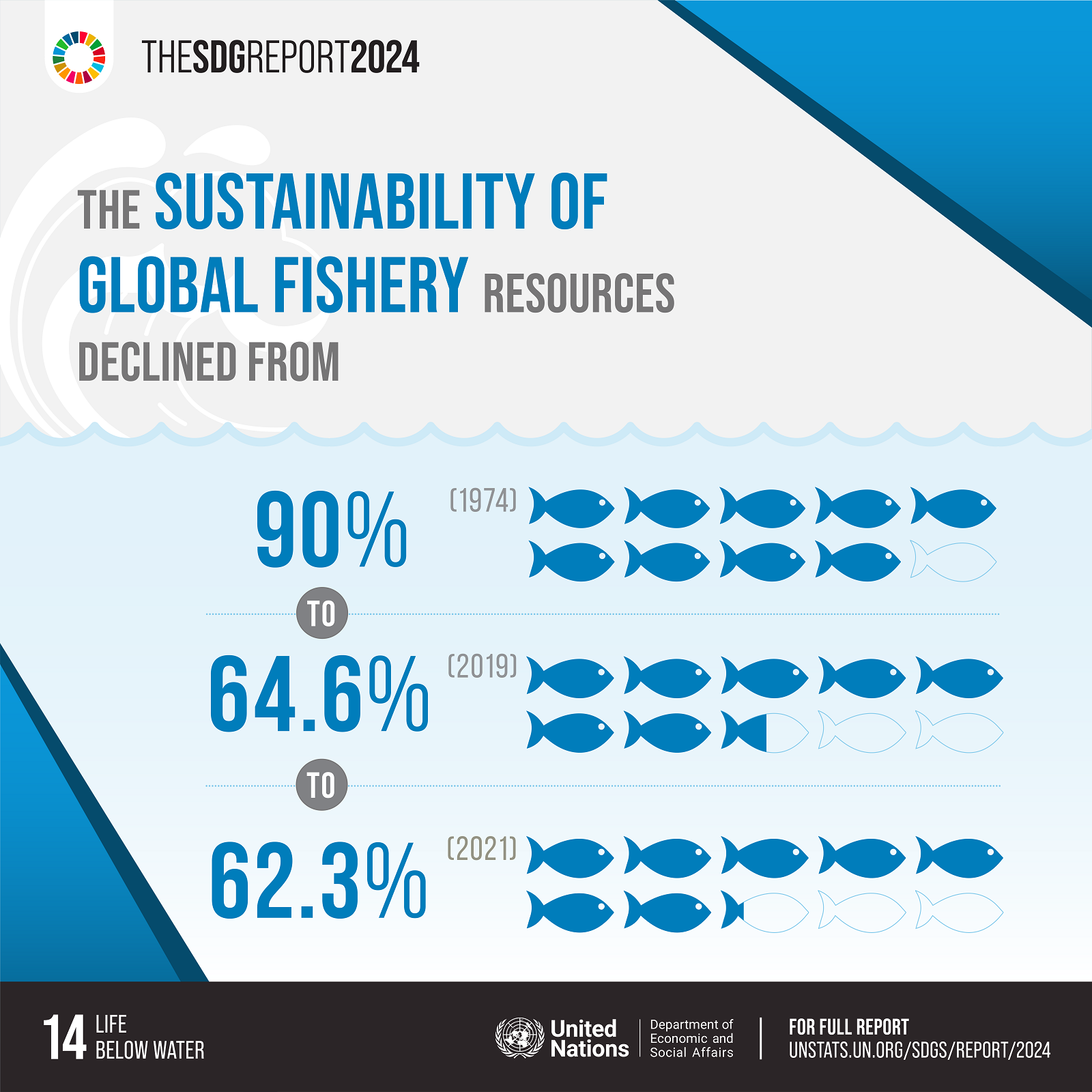
Oceans and Seas

Sustainable tourism
Overview
Targets and Indicators

14.1
By 2025, prevent and significantly reduce marine pollution of all kinds, in particular from land-based activities, including marine debris and nutrient pollution
14.1.1
(a) Index of coastal eutrophication; and (b) plastic debris density

14.2
By 2020, sustainably manage and protect marine and coastal ecosystems to avoid significant adverse impacts, including by strengthening their resilience, and take action for their restoration in order to achieve healthy and productive oceans
14.2.1
Number of countries using ecosystem-based approaches to managing marine areas

14.3
Minimize and address the impacts of ocean acidification, including through enhanced scientific cooperation at all levels
14.3.1

14.4
By 2020, effectively regulate harvesting and end overfishing, illegal, unreported and unregulated fishing and destructive fishing practices and implement science-based management plans, in order to restore fish stocks in the shortest time feasible, at least to levels that can produce maximum sustainable yield as determined by their biological characteristics
14.4.1

14.5
By 2020, conserve at least 10 per cent of coastal and marine areas, consistent with national and international law and based on the best available scientific information
14.5.1

14.6
By 2020, prohibit certain forms of fisheries subsidies which contribute to overcapacity and overfishing, eliminate subsidies that contribute to illegal, unreported and unregulated fishing and refrain from introducing new such subsidies, recognizing that appropriate and effective special and differential treatment for developing and least developed countries should be an integral part of the World Trade Organization fisheries subsidies negotiation
14.6.1
Degree of implementation of international instruments aiming to combat illegal, unreported and unregulated fishing

14.7
By 2030, increase the economic benefits to Small Island developing States and least developed countries from the sustainable use of marine resources, including through sustainable management of fisheries, aquaculture and tourism
14.7.1
Sustainable fisheries as a proportion of GDP in small island developing States, least developed countries and all countries

14.a
Increase scientific knowledge, develop research capacity and transfer marine technology, taking into account the Intergovernmental Oceanographic Commission Criteria and Guidelines on the Transfer of Marine Technology, in order to improve ocean health and to enhance the contribution of marine biodiversity to the development of developing countries, in particular small island developing States and least developed countries
14.a.1

14.b
Provide access for small-scale artisanal fishers to marine resources and markets
14.b.1
Degree of application of a legal/regulatory/policy/institutional framework which recognizes and protects access rights for small‐scale fisheries

14.c
Enhance the conservation and sustainable use of oceans and their resources by implementing international law as reflected in United Nations Convention on the Law of the Sea, which provides the legal framework for the conservation and sustainable use of oceans and their resources, as recalled in paragraph 158 of "The future we want"
14.c.1
Number of countries making progress in ratifying, accepting and implementing through legal, policy and institutional frameworks, ocean-related instruments that implement international law, as reflected in the United Nations Convention on the Law of the Sea, for the conservation and sustainable use of the oceans and their resources
Progress and Info
The ocean economy supports millions globally but faces intensifying threats from overfishing, pollution and climate change. Despite a decade of conservation efforts, rising CO₂ emissions continue to drive ocean acidification and damage marine ecosystems. Strengthened enforcement has not sufficiently curbed overfishing and illegal practices that deplete fish stocks. Small-scale fisheries have gained support but require additional protection. Safeguarding oceans for future generations demands urgent scaling up of investment in sustainable fishing practices, comprehensive marine conservation and enhanced international cooperation. The United Nations Conferences to Support the Implementation of Sustainable Development Goal 14: Conserve and sustainably use the oceans, seas and marine resources for sustainable development have galvanized global action to protect the ocean, in line with Goal 14.
Target 14.2 - In 2024, 126 countries and territories were engaged in marine spatial planning initiatives, a tool for implementing ecosystem-based approaches to managing marine areas – up 20 per cent from 2023. However, only 45 have formally approved marine spatial plans.
Target 14.3 - Ocean acidification is worsening as global average surface pH declines, driven by rising CO2 emissions. Continued acidification threatens marine life and climate stability. The expansion of monitoring stations (from 178 in 2021 to 765 in 2025) underscores the need to expand high-frequency and long-term tracking to develop effective mitigation and adaptation strategies.
Target 14.4 - In 2021, 37.7 per cent of global fishery stocks were estimated to be overfished, up from 35.4 per cent in 2019. While the pace of decline had previously shown signs of slowing, the latest data confirm a continued deterioration.
Target 14.6 - Illegal, unreported and unregulated fishing continues to threaten the sustainability of global fisheries. As at January 2025, 78 Parties (65 per cent of coastal States) had joined the Agreement on Port State Measures to Prevent, Deter and Eliminate Illegal, Unreported and Unregulated Fishing, the first binding international instrument developed to combat illegal, unreported and unregulated fishing. Globally, countries’ average degree of implementation has remained steady, with a score of 4 out of 5, from 3 out of 5 in 2018.
Target 14.b - In 2024, the Voluntary Guidelines for Securing Sustainable Small-Scale Fisheries in the Context of Food Security and Poverty Eradication marked their tenth anniversary, with growing adoption worldwide. However, the global average score, which tracks the implementation of instruments that recognize and protect access rights for small-scale fisheries, dropped from 5 (very high implementation) in 2022 to 4 (high implementation) in 2024, based on reports from 112 countries. However, the overall trend since 2018 has been positive, and more countries have been reporting since 2020.

For more information, please visit: https://unstats.un.org/sdgs/report/2025/
More details on SDG 14 in 2025: https://unstats.un.org/sdgs/report/2025/Goal-14/
The 2025 Extended Report on SDG 14 can be found here: https://unstats.un.org/sdgs/report/2025/extended-report/Extended-Report-2025_Goal-14.pdf











